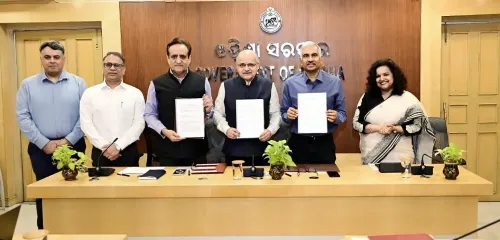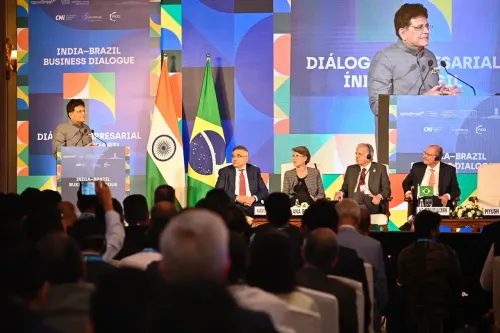Should health insurance firms revoke suspensions and create an affordable & sustainable model?

Synopsis
Key Takeaways
- The AHPI is advocating for the restoration of cashless hospitalization services.
- Improved operational efficiency is essential for sustainability in healthcare.
- Patients are currently facing challenges due to suspensions by insurance providers.
- Collaboration between hospitals and insurers is vital to address issues.
- Affordable healthcare remains a priority for both the public and the government.
New Delhi, Sep 1 (NationPress) As numerous health policyholders in India face challenges due to the loss of cashless hospitalization access, the Association of Healthcare Providers - India (AHPI) has urged health insurance companies to lift suspensions and establish a model that is both affordable and sustainable.
In an interview with IANS, AHPI Director General Dr. Girdhar Gyani stated that the association has called on insurers to reinstate cashless services wherever hospitals have been removed from their network.
He mentioned that the AHPI will work to facilitate discussions between hospitals and insurance providers to tackle the underlying issues and offer relief to patients.
"We have issued notifications to seven insurance firms requesting them to lift the suspension on hospitals that have been excluded from their network. Once these services are reinstated, we will engage with them to address the issues and adjust the rates," Gyani remarked.
"Additionally, we are urging hospitals to adopt a reasonable approach," he added.
His remarks follow the announcement from Niva Bupa Health Insurance that it has suspended cashless treatment services at Max Hospitals nationwide.
Dr. Bhabhtosh Mishra, Director and COO of Niva Bupa Health Insurance, noted that the company’s contract with Max expired in May 2025. Negotiations over premium adjustments did not yield a consensus, resulting in the suspension of cashless services.
"We would like to inform you that our cashless services at Max Hospitals are currently unavailable," Mishra stated, adding that Star Health and Care Health are also encountering similar challenges with Max Hospitals.
The AHPI initially advised its member hospitals in North India to cease cashless treatment services for policyholders of Bajaj Allianz General Insurance Company, effective September 1, 2025.
Gyani explained that "the suspension was lifted as the company addressed all concerns, allowing for the reinstatement of services at some of our major hospitals".
A similar notice was issued to Care Health Insurance, with a response deadline of August 31, which they met.
Care Health informed IANS that it is continuing to provide cashless services, with Manish Dodeja, Chief Operating Officer, stating, "Rest assured that valued customers of Care Health Insurance will always receive seamless cashless services at all our network hospitals. We are committed to working closely with all our partner hospitals to ensure our customers receive the quality care they deserve."
Gyani elaborated that while both the government and the public desire affordable healthcare, insurance firms and hospitals must prioritize sustainability.
However, achieving sustainability necessitates improving operational efficiency, he pointed out.
"For instance, insurance companies in India allocate approximately 30-35% of premium income to administrative costs, commissions, and sales. We are advising them to reduce these expenditures, as annual premium hikes lead to public concern," Gyani noted.
"Similarly, hospitals must enhance their operational efficiency and eliminate unnecessary expenses. Ultimately, we need to progress towards ensuring that healthcare is both affordable and sustainable for both hospitals and insurance companies," he concluded.









